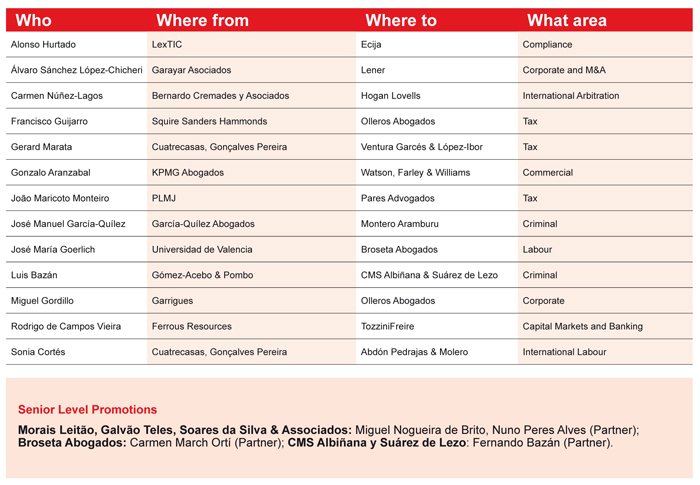Lack of financing causing major issues for businesses
In-house Counsel say that as the crisis deepens, so does the battle to secure financing, especially if you are suffering from an international market perception problem
Europe’s financial crisis is causing acute problems for even the most successful of businesses. Not only are those with existing finance experiencing problems, with many struggling to renegotiate the terms of their credit agreements, but also new sources of investment for expanding businesses have become scarce.
The situation is made even worse in cases where a business is reviewing and restructuring its operations or where they are experiencing financial difficulties.
Company Secretaries and In-house Counsel from some of Portugal’s largest banks and businesses discussed potential approaches and solutions during a recent Master Class in Lisbon. Members of Iberian Lawyer’s In-house Club had requested the meeting in order to learn from each other’s experiences, discuss potential domestic solutions and innovative international alternatives.
Participants attended from a wide range of businesses such as Ascendi, Banco Itaú, Banif, Barclays, Colt Technology Services, Galp Energia, Millennium BCP, Portugal Telecom, and Tabaqueira. They were joined by top experts from international law firms, including Nancy A. Mitchell and Paul Berkovitz from leading US firm Greenberg Traurig.
Mitchell, who leads the Business Reorganisation & Financial Restructuring Practice at Greenberg Traurig, moderated the discussion together with António Neto Alves, General Counsel at Portucel Soporcel Group. Summarising the gravity of the situation, Neto Alves said that the challenge for Portugal has gone beyond the initial lack of finance for investing in growth, and businesses are often struggling just to ensure working capital and managing cashflow.
“And outside of Portugal, there is a perception problem,” he added. “For example, US banks look at Portugal and cannot make sense of what is happening with regards to the restructuring of a company or insolvency.”
Opinion among participants was split on the question of how long the current challenge would last and how deep it would go. There is a difference between the internal reality and external perception of Portugal, Pedro Cassiano Santos, a Partner at Vieira de Almeida explained. “We haven’t defaulted on our obligations and the country is responding to the crisis. We need to communicate this better externally.”
Pedro Cardigos at Cardigos in Portugal was less optimistic: “I would love to live in that country, but I do not think it reflects the current reality. The downgrading of Portugal will take years to get back and has affected everything. The need to find ways to source funding is the new reality.”
There was full consensus, however, on Portugal’s damaged international image and the difficulties that this was causing to businesses, and their In-house Counsel.
Companies have therefore been exploring available options, including restructuring their international operations into new corporate entities, thereby ring-fencing their Portuguese assets. “This allowed us to separate our business, as much as possible, from perceived Portugal risk,” one participant explained, and had meant that they could raise funds on the back of their non-Portuguese assets.
Unfortunately, there is no magic solution to these issues, the moderators explained, with each structure sharing advantages as well as disadvantages. Such approaches do unlock value from assets, but they need to be structured in a way to overcome resistance from parent lenders if they don’t want assets out of the corporate group.
Where a business is looking to borrow on their non-domestic assets, or generate revenue by selling assets, they have to look carefully at the best corporate structure. And attracting foreign capital would inevitably be a challenge until the situation with the Euro is settled.
“Investors need to be able to understand the legal risk of a market because that allows them to price that risk into an investment,” said Mitchell at Greenberg Traurig. “If the legal risk of a market is uncertain then investors can’t price it and therefore may not invest. While US investors have tremendous interest in Portugal, they find it difficult to quantify the legal risk.” The Portuguese need to help the US market understand that while their restructuring and insolvency systems, among others, are different, they do in fact work.
Both Mitchell and her colleague, Paul Berkowitz, a Miami-based Shareholder in Greenberg Traurig, have seen interest from their clients in Spain and Portugal, from the US as well as China, with the bond market or hedge funds providing some interesting options.
The current and most pressing need, however, is to package distressed purchase deals in such a way as to provide legal certainty and at prices that match expectations on both sides.
Subscribe now to receive your copy of Iberian Lawyer











